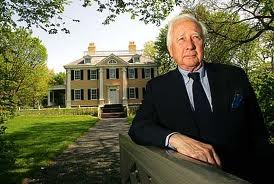Family History Books: Using Literary Techniques to Tell Stories
Biff Barnes
A family history writer is something very different from a family history researcher even if they are embodied in the same person. A researcher ransacks the vital records to discover the facts. A writer goes beyond those facts to find their meaning.
“History at best has to be literature or it will go to dust,” said historian David McCullogh during his 2003 Jefferson Lecture in the Humanities.

How does that transformation of fact to literature occur? McCullogh cited a passage from the great 19th Century historian of the American West, Francis Parkman:
Faithfulness to the truth of history involves far more than a research, however patient and scrupulous, into special facts. Such facts may be detailed with the most minute exactness, and yet the narrative, taken as a whole, may be unmeaning or untrue. The narrator must seek to imbue himself with the life and spirit of the time. He must study events in their bearings near and remote; in the character, habits, and manners of those who took part in them. He must himself be, as it were, a sharer or spectator of the action he describes.
A family historian seeking to follow Parkman’s advice might begin with stories. Facts are well and good, but it is the stories behind those facts that are the stuff of literature.
That can mean employing the tools of creative nonfiction. Lee Gutkind, described by Vanity Fair as the “Godfather of Creative Nonfiction” explained how, “…creative nonfiction” precisely describes what the form is all about. The word “creative” refers simply to the use of literary craft in presenting nonfiction—that is, factually accurate prose about real people and events—in a compelling, vivid manner. To put it another way, creative nonfiction writers do not make things up; they make ideas and information that already exist more interesting and, often, more accessible.”
One of our Stories To Tell clients, Bruce Bothwell, did exactly that with the journals his father kept during his decade as a hobo in the 20s and 30s. The result was On The Tramp in which Bothwell made use of literary techniques which enhanced the narrative with dialogue, heightening scenes to detail the story without detracting from the truth.
But not every family historian has stories already recorded in an ancestor’s journal. Sometimes she must go beyond her factual research to find them. Some of that involves speculating about what the facts suggest. If one asks not only “What happened?” but “Why did it happen?” she may draw some interesting conclusions. Your Family Legacy offers an excellent example of the kinds of speculation a family historian might make in The Missing Story.
Family historians are often skeptical about stories passed down through the generations. That’s understandable. They love documentation. It’s also too bad. Digging into family lore can lead to some fascinating stories. RootsWeb demonstrates how in an article titled Family Legends – Can They Be Trusted?
A family historian who can’t find stories about an ancestor might look at the historical context of their times. Finding Family History.org provides an excellent example of this kind of thinking:
After you’ve filled in as many dates and events as you can at this point, go back and determine the historical theme relevant to each event. The historical theme is crucial to your story; it will help place your “characters” into historical perspective.
Here are two examples of personal events with their historical themes:
Date: 3 June 1907
Event: Eleanor arrives alone at Ellis Island.
Historical theme: What was it like for a woman to go through processing at Ellis Island on her own?
Date: 25 Apr 1920
Event: Uncle Harry moves to Florida and buys land.
Historical theme: What drew people to Florida in the 1920s?
Whatever way you do it, taking your family’s out of the factual realm by telling their stories will make your family history book memorable.